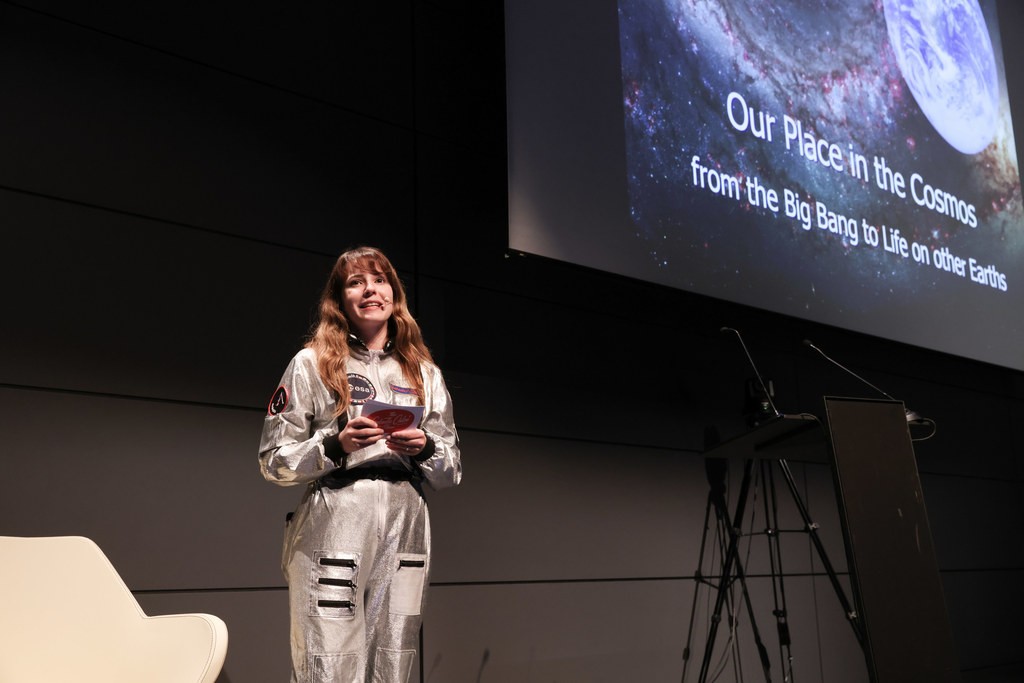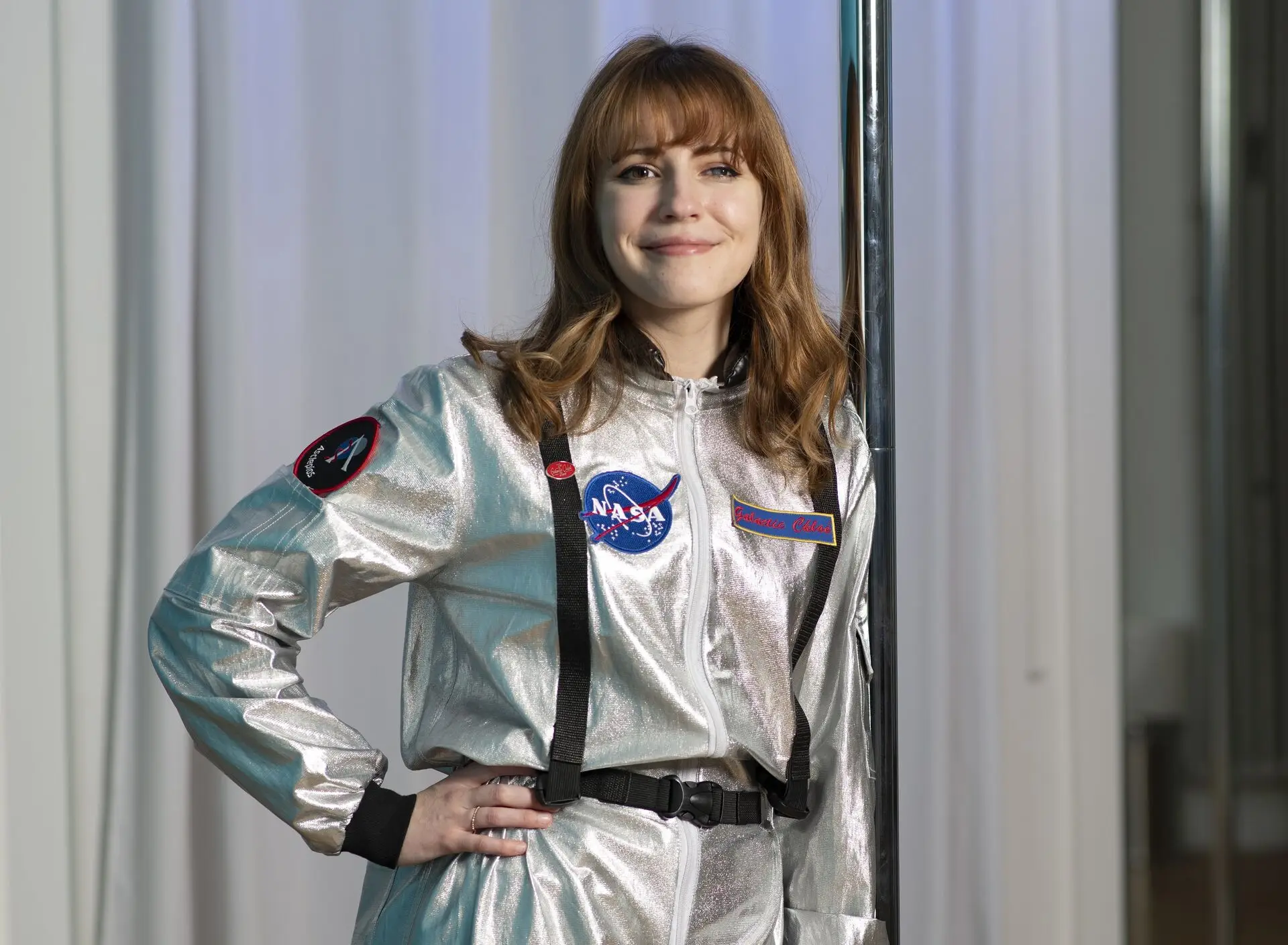For as long as I can remember, I have always wanted to become a mother. I didn’t see life with a meaningful purpose without children.
The will to work within the space industry however came quite later on, when I was a teenager or even a young woman. I remember this night like it was yesterday. My mother and I had decided to go to the researchers’ night at the University of Burgundy. I was 15 years old, I liked sciences but also history, English literature and much more. So I didn’t have much of an idea of what I wanted to do.
During this evening, I met with researchers from the European Space Agency. They were presenting the latest results of the Planck mission, looking at the first moments of our universe. I remember I wasn’t afraid to ask questions, even though I was among the youngest people there: like “how can the universe be infinite and still extend itself?” “What is dark matter?” “How can we look at the past?” Answers only arose more questions.
And just like that: I was hooked.
So when I had to decide which degree to pursue after graduating high school, the choice was simple: physics. I joined EPFL with the dream of one day becoming an astrophysicist and work for the European Space Agency.
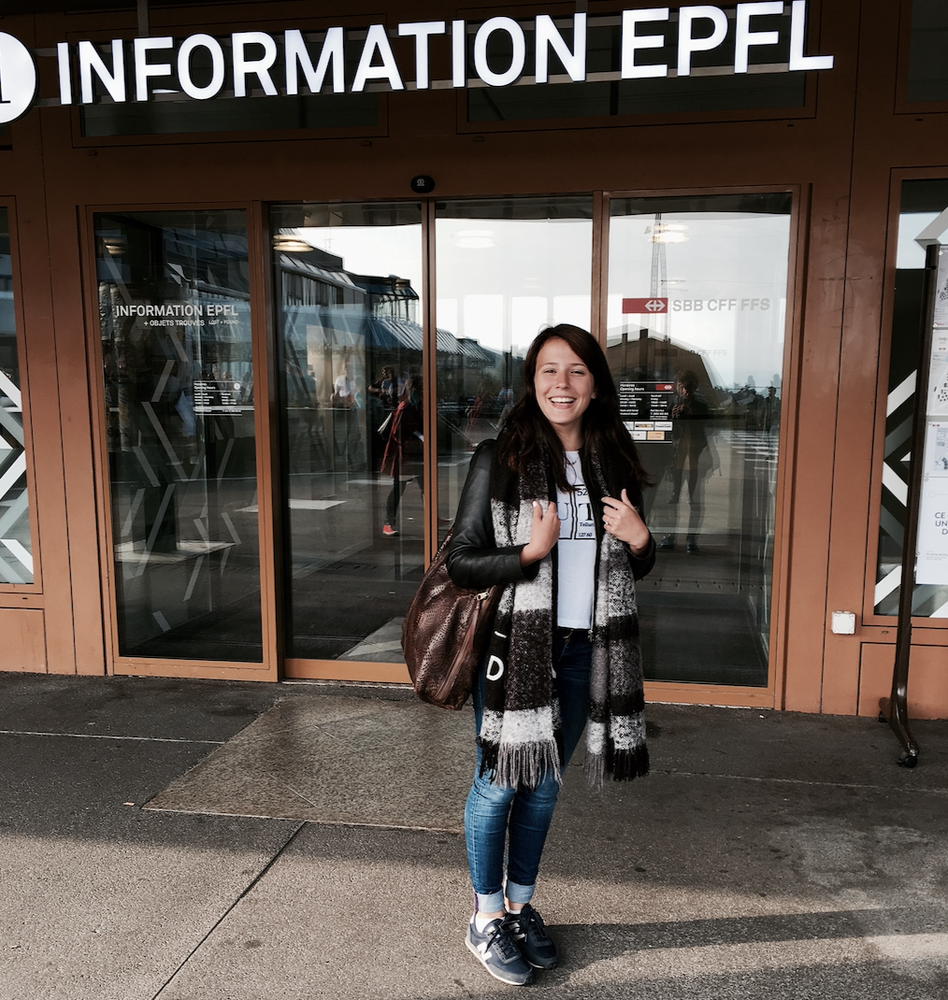
When I failed my first year, this is when it hit me for the first time: can I really do this? Am I good enough?
I told myself: “Chloe, you have a choice to make: either you give up now and change because you think this is too hard (or not for you). But if this is truly what you want to do, then you make the most of year to come.” You can guess the decision I made… This is the moment I took matters into my own hands, knocked on doors, dared to create new organizations and push further some frontiers in the space field.
Thanks to these extracurricular activities, I realized that this initial dream that I made for myself was not where I belonged. Yes I love astrophysics, but I don’t enjoy the job of an astrophysicist, or at least not right now. So I adjusted my trajectory to join a Masters in Management of Technologies, with a specialization in space tech. I felt like I had found the field that fit my dynamism and values.
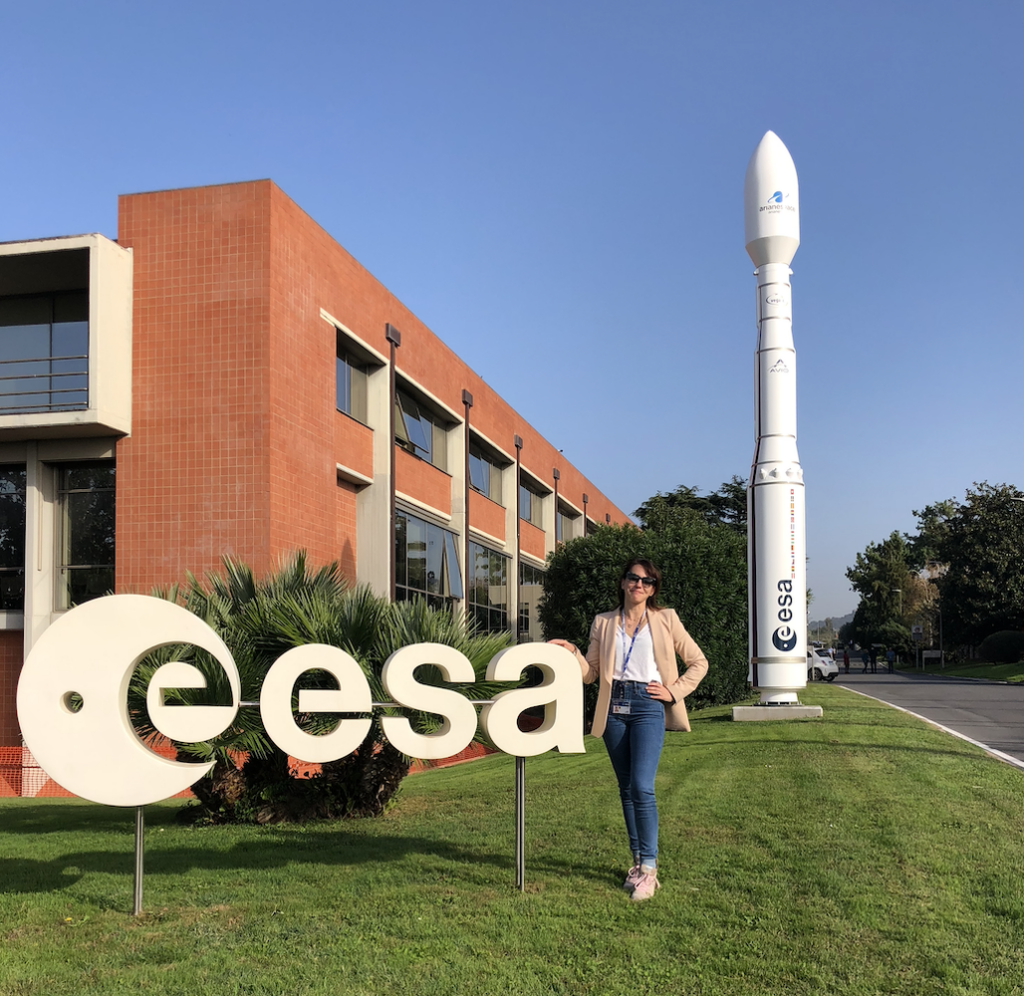
After finally getting my degree and achieving so many things in science communication and other space projects, the holy grail was getting to do my master thesis at ESA. Because this was my dream from the beginning. I had achieve the goal.
And you know what I discovered:
ESA is not my dream.
I have learned many things during my 6-month stay at ESRIN but I wouldn’t want to do a YGT or work within the agency. There are many reasons for this statement, I guess one way to summarize it is I want to work in an environment where I am my own limit and not the environment itself.
But I can guarantee you that going through the disappointment of “loosing” this ideal I had in my mind was harsh. This is when I notably realized the importance of demystifying our dreams. We tend to build up what we believe we are made for in our mind. But the truth is, you don’t know until you actually experiment it.
The job I started a few months back at CSEM was on paper the perfect job for me. It was a perfect fit with respect to my studies, a welcoming environment with amazing colleagues and being able to play a role in developing high-tech space technologies.
When I started there early April, I was pretty confident that I had found a position that both met my aspirations and my values.
And yet – something simply didn’t feel right.
On the first week I started working at CSEM, I learned about my pregnancy. A happy event that was definitely wanted but came quite surprisingly very early on.
I have to say that the first months have been more than a struggle. Starting a new job, moving apartments and accepting the changes in my body and mind were simply too much at the time.
The way I lived it, talking about the “little aches and pains” of the first trimester is clearly an understatement. Between the having to sleep at least 10 hours a day, the constant hangover mood (it’s not morning sickness – it’s daily sickness, in my case), and the changing emotions (crying about every two days and reconsidering your life choices), I believe I had never hit rock bottom that hard.
I even thought, and I bet I’m not the only one, that I had made a mistake, that I was not ready for this life experience. Because what’s better than a bit of guilt above it all… Funny that according to social norms it’s also the period “you’re not supposed to talk about it” when it’s actually the time when you would need the most support and understanding, especially at the workplace.
In the end, I didn’t feel like I belonged in my own life any longer. I was lucky enough to have the support from my family and friends that forced me to take two-weeks off to gain some perspective.
You realize that it’s during the difficult times in your life that you happen to have the most clarity on what you actually feel, reconsider and take action.
In my case, I quickly realized that the issue was not with my pregnancy and the coming responsibilities of motherhood, but rather who I was apart from that. At this point I was two months in my trial period and everything was going extremely well. I was getting along with my boss and colleagues, the working environment was excellent, and the space technologies that they are developing are just astonishing. And yet, I didn’t feel Iike I was where I was supposed to be. I was starting to discover what working in the corporate world was like, be an “employee” and what “building a career” means.
When talking with other young professionals, I feel like a lot of us get this feeling: you literally have worked your whole life for this. Have great grades from primary school to high school so you can choose the job you would like to do. Then in University be at the top of your class to score the best internships and ultimately the job that will launch your professional career.
And the feeling when you start is kind of: “Uh,… all of this just for that.”
In my case, and probably exaggerated by the hormones going through my body, I just simply didn’t feel like this could be my life. So what do you do?
That’s the question I asked myself during those two weeks off: “Chloé, what do you do? You know this organization is counting on you long-term and you have the feeling that you won’t come back after your maternity leave… What? Quit? Do I remind you that you are pregnant – it’s not just about you anymore. You need to provide financial security for the future of your child”.
These thoughts were coming and going, advice from external people as well. But in the end, I knew the answer deep down all along. Ethically, I don’t want this company to waste time on training me if I’m not going to stay, and I owed to myself and future family to find the thing that will make me, and therefore us, happy.
So against most advice, I quit.
I took the huge risk to not have maternity leave and be financially unstable for a while. But I didn’t make this decision without any project in mind.
I always had the wish to one day create my own company, be able to build an environment that fits my values and have a meaningful and direct impact. So why not now?
But what would be the “product” so to say? I always envisioned my dream job as a job I would do without even getting paid. And this I have been doing for a long time already: in science communication. I see the need for new actors, especially in Switzerland to be able to bridge the gap between science and society – and this since my first day at EPFL. When thinking back to how I fell in love with the space sector at the beginning, it actually makes sense. It’s because of outreach that I am writing these lines today. So let’s go all in!
It’s exciting, it’s scary because it’s going away from my initial training as an engineer… The truth is CSEM was the perfect job for me on paper, checked almost all the boxes. And yet, it was not meant for me. So I decided to trust my gut, take the leap and join fully the world of entrepreneurship.
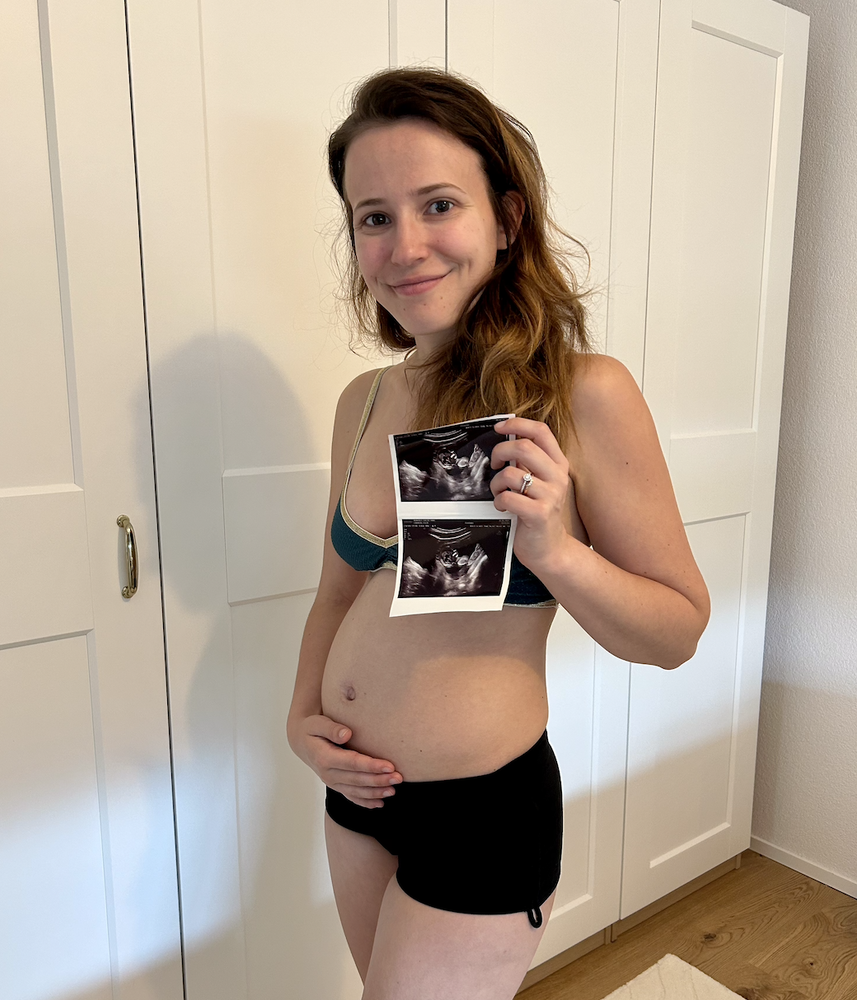
The moment my decision was made, I felt like I belonged again. My former employer has been extremely understanding and actually even excited for me to have figured this out so early on in my career.
We often ask children “what do you want to do when you grow up?” – expecting a job answer. Well, from my point of view, I think the “right” answer to this question is fulfilled. The job is just a mean that will likely change at several points in our lives – giving us a unique trajectory that we are free to shape however we want to.
In the end, isn’t choosing the road less traveled fully embracing your own trajectory?
